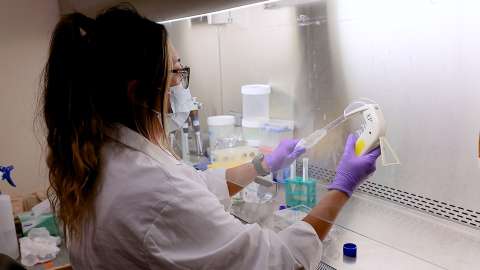Research and Clinical Trials
Research and Clinical Trials

All fellows meet with a faculty mentor at the beginning of the academic term to develop research projects that are conducted over the course of the year. Most rotations have substantial (>50%) built-in elective time that fellows can use to engage in research activities. Fellows have a strong track record of having research accepted for presentation at international conferences, including the International Stroke Conference and World Stroke Congress, and many fellows go on to publish their findings in peer-reviewed publications.
UCLA’s core stroke faculty have diverse research interests and can provide mentorship on projects spanning much of the field of Vascular Neurology. Collaborative research with UCLA’s leading interventional neuroradiology and neurovascular surgery services includes studies of cerebral angioplasty, catheter administered thrombolysis, vascular malformations, carotid endarterectomy, and other conditions. Moreover, UCLA is actively participating in over one dozen stroke-related clinical trials and prospective research studies – both site-initiated and multi-institutional (via collaborations with NIH StrokeNet and industry sponsors) – and all fellows gain plenty of clinical research experience identifying and recruiting patients for these trials. Formal didactic teaching provides additional training in neuroepidemiology, outcomes research, clinical trial design, and biostatistics. Ample additional research opportunities are tailored to fellow interest and, in addition to the above, may include studies of:
- Neuroimaging in acute stroke care
- Stroke systems of care and the mobile stroke unit
- Vascular cognitive impairment, post-stroke cognitive impairment, and dementia
- Neuromodulation in acute stroke
- Neuromodulation in stroke recovery
Get to know one of our state-of-the-art research labs. This profile features Dr. Jason Hinman, Associate Professor of Neurology and Vice Chair of Research for the Department of Neurology. His work focuses on identifying the molecular pathways that interface two of the most common neurologic disorders: stroke and dementia.
For more information, please visit our program's Research page.